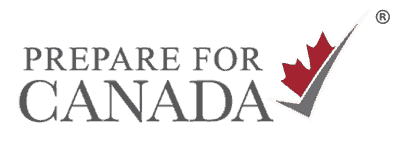Exercise and mental health are important to manage after after arriving in Canada. Overall, Canadians greatly value physical well-being. So each city provides health and fitness clubs and sport-based community centres. We’ll look at some options for you to maintain both your physical and mental health.
Some of the private, brand-name clubs may have high membership fees. However, they may also provide a pool, private training, saunas, tanning booths and a more private environment. So it this is important to you, you may want to consider if it fits your budget.
Advertisement:
Community Fitness Centres Offer Many Programs
Advertisement:
Alternatively community fitness centres are more affordable than private gyms. Community centres are run by municipalities and they offer facilities and programs for families, children, and seniors.
Also, you can vist you city’s website to find sports programs, arts and craft classes, and dance lessons that suit your schedule and your budget. Programs that are run by the city are often the most affordable. The YMCA and Boys and Girls Club also offer recreational programs for your children.
There are also sports leagues for children and adults such as:
- soccer
- baseball, and
- hockey.
Team sports are a great way for adults and children to get involved in sports. And, it’s a great way to meet new friends in the community!
The best and easiest way to get exercise is right outside your door. Canadians in every province love to take advantage of nature for both exercise and mental health. And in every community, you’ll find a variety of parks, hiking trails, lakes or mountains.
Advertisement:
Your province and city will provide parks and recreation activities near you. The majority of parks are free and offer well-maintained:
- playgrounds
- walking trails, and
- campgrounds (for a small fee if you are looking for a washroom and a water supply).
It can be exciting to venture out and go on long drives to explore your province. British Columbia, for example, is much more diverse than just the city of Vancouver! So be sure to explore beyond the urban centres and big cities. Acquaint yourself with small towns and well-kept traditions of First Nations settlements.
Maintaining Your Mental Health
If you find that you are facing mental health problems, your family physician can refer you to a specialist to get the support you may need. Some mental health services are covered under the provincial health care system.
However, prevention is key to maintain strong mental health when settling in Canada.
After the initial excitement of immigration wears off, you are likely to feel alienated or doubting your decision to immigrate. This stage is usually full of extreme emotions, doubts, anxieties, homesickness, loneliness and frustration. If you have language difficulties and few ties to your ethnic community, you may experience a deep feeling of isolation. You may also be tempted to compare Canada to your home country and point out everything you feel was better back home. Such stress may trigger depressive or anxious symptoms including insomnia, and increase in consumption of food, cigarettes, alcohol, drugs, etc.
To help you cope with your anxiety and confusion, here are a few tips.
1. Reach out
If you don’t know anyone in Canada, go to an immigrant-serving organization or community centre. When you arrive at the airport, the immigration officer will give you a booklet with useful contacts and cultural community centres in your area.
Also, work on building a supportive social network. Make use technology and social networks to maintain your contacts at home. Participate in real-life activities to meet new people. For example, join the gym or take up dance classe. You’ll find yourself meeting people from all ethnic backgrounds and other recent immigrants. So you’ll get exercise and improve your mental health.
Related Post:
Steps to Access Free Health Care in Canada
2. Avoid Comparing
It’s very normal to miss home and to realize that Canada will never be exactly like the country you left behind. Some of the good things you had at home may not be available here; no country is perfect. Focus on the positives.
3. Manage Your Budget Carefully
Shrinking savings are one of the major sources of panic for new immigrants. So to avoid this stress, avoid overspending. This will help to preserve your sense of security for as long as possible.
Also, do not fall into the common trap of constantly comparing Canadian prices with the prices in your home country. “Back home this or that costs a lot less” — such a mindset can only put you in a pessimistic mood.
4. Get Involved to Improve Mental Health
A great way to stay positive forget is to devote yourself to others. Volunteer at an organization or a cause that you feel could use your skills and knowledge. You will make friends, gain a sense of community and learn new things.
And guess what? In Canada, volunteering counts as work experience that you can add to your resumé.
5. Keep Realistic Expectations
Success won’t happen overnight. You may not find a job that matches the status you had in your home country. It’s no piece of cake even for Canadian-born citizens to reach a higher professional level.
Accept that it takes time and that you may have to start at a lower position and work your way up. All this being said, it is still normal to feel confused and scared occasionally. Acknowledge your feelings, but don’t let them overwhelm you.
Understanding the importance of exercise and mental health will help you to adapt to Canada successfully. With many options available, getting the exercise you enjoy, and enhancing your mental health is a win-win situation.


